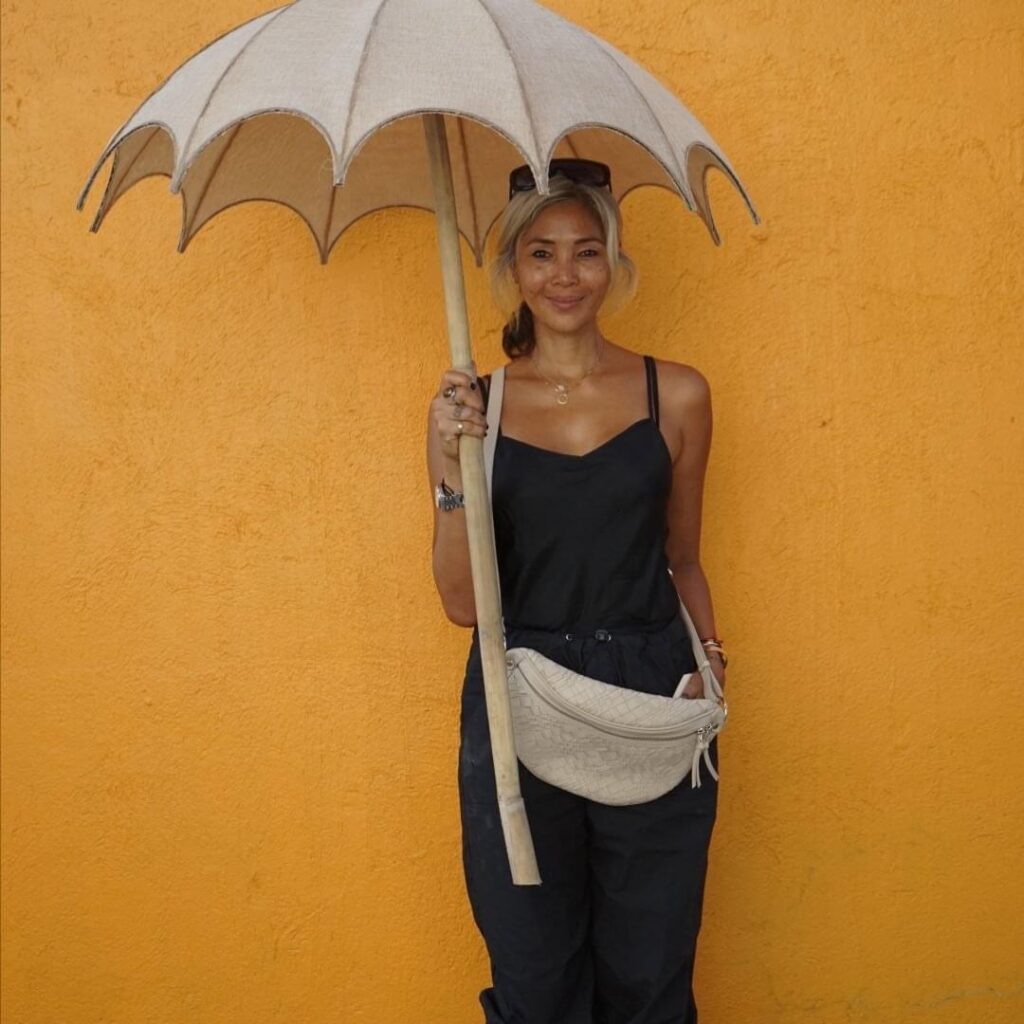Clair Concepcion Barberis, tall and slim, her enviable tan the badge of happy days spent at the family’s island retreat in Palawan, or perhaps at their farm in Batangas, was perfectly described by her friend Rafe Totengco, bag designer extraordinaire based in New York City.
“…Clair isn’t one to sit still,” he said in a story in his website for Rafe New York.
He had designed a bag for her, based on her request for one that “she could wear with everything and wear anywhere, a bag that could dress up even the most casual looks.”
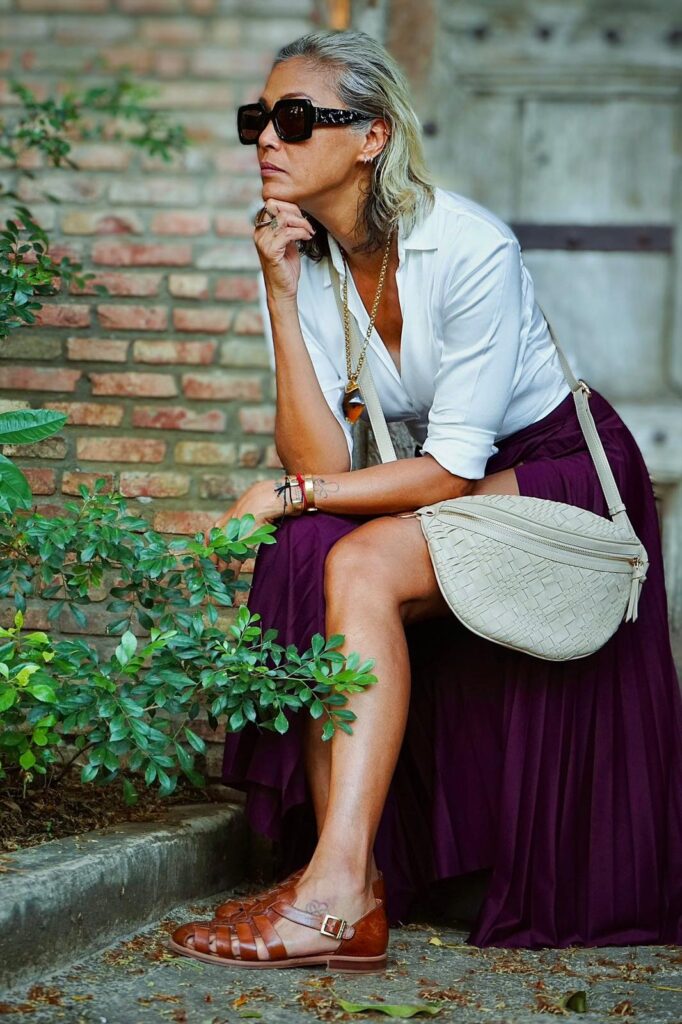
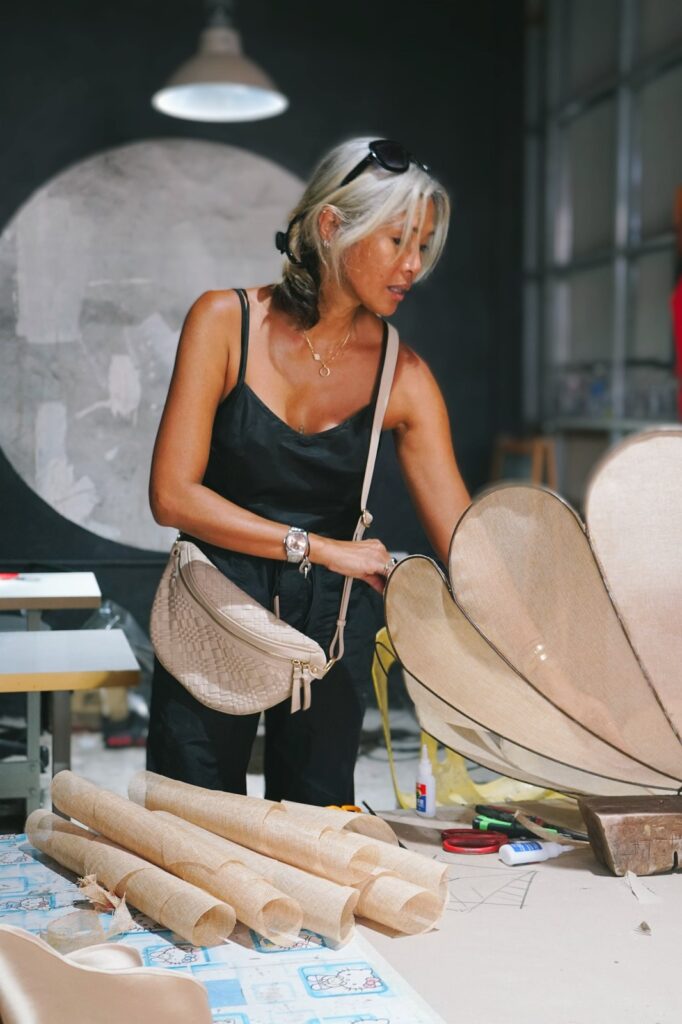
Tall order? Not so, with Rafe, but the request seems typical of the kind of standards Clair sets for herself, in everything she does.
The founder and visionary behind Artifeks — a venture that Clair established as a design workshop putting “creative individuals with artisans who can realize their designs” — places talented Filipino artisans and craftsmen at the forefront of design and locally made handcrafted objects and furniture that highlights creativity and innovation.
“I am the face [of the brand] but at the end of the day, we’re one team and we’re all working together,” Barberis told DAILY TRIBUNE in a PairFect interview, recognizing the talent and hard work of each of her in-house artisans who have not only mastered creating and manufacturing furniture, but also embraced the principles of resource and waste management in their daily lives.
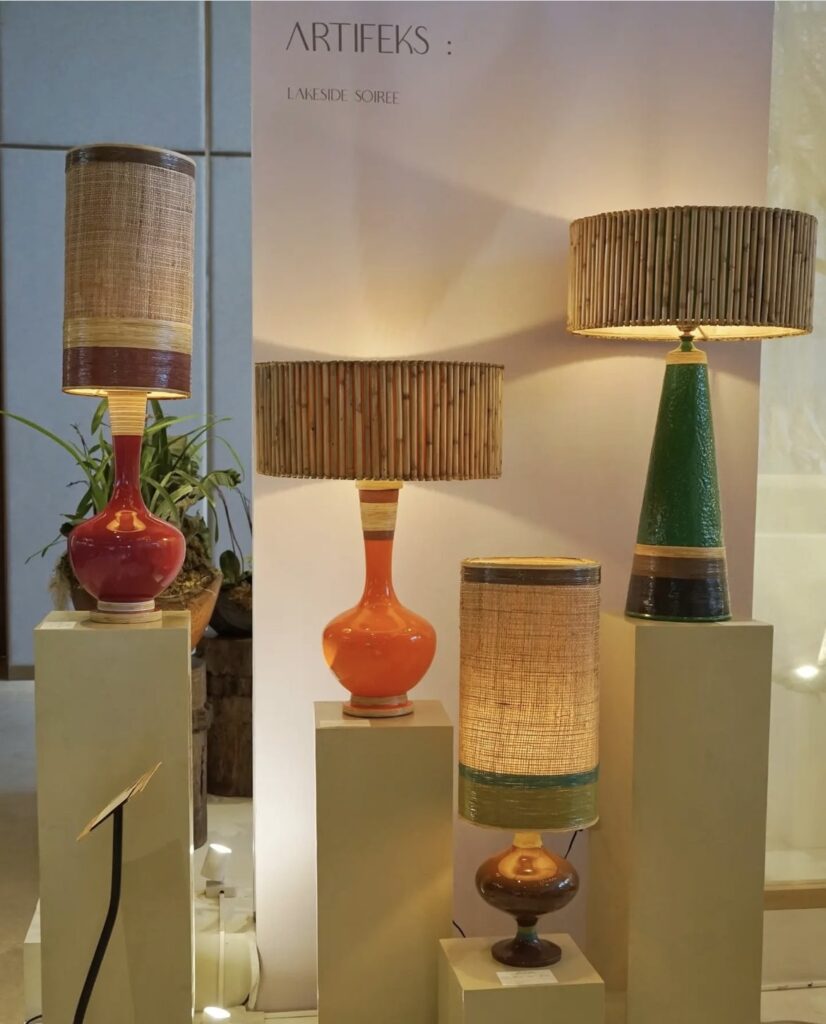
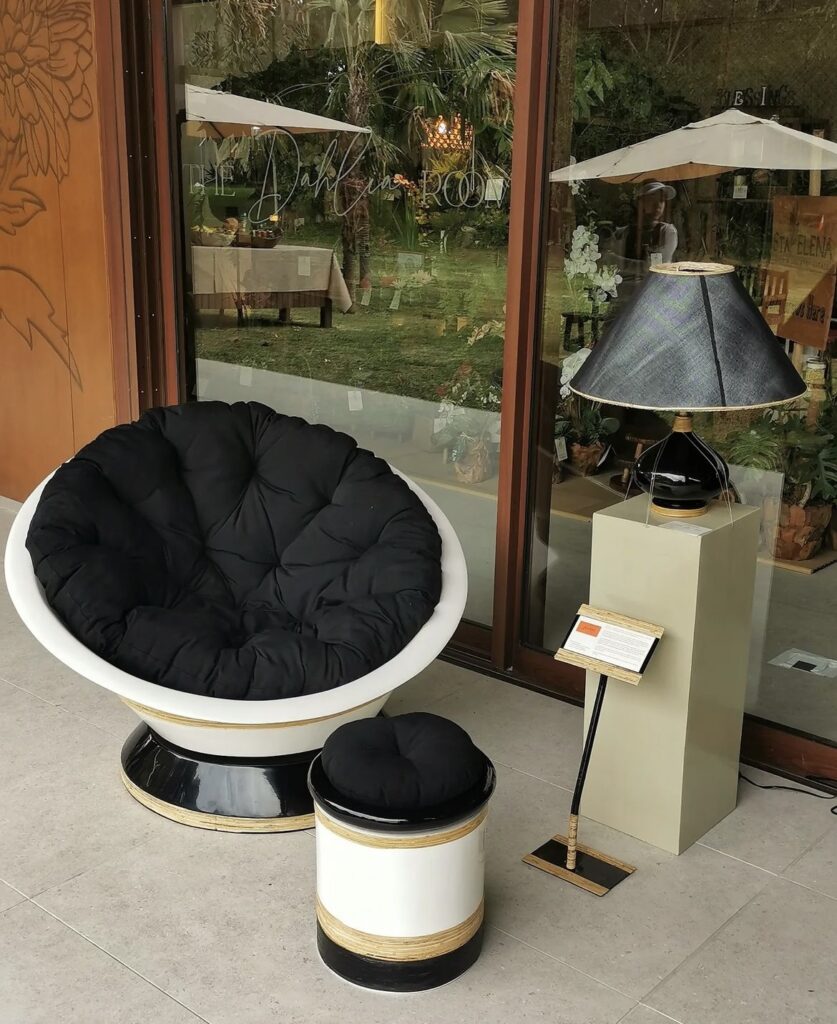
Handcrafted with love
Clair, at a time she realizes she could be slowing down, is fully into this passion for elevating Filipino craftsmanship. In less than two years, Artifeks has transcended into being a local brand that creates and manufactures handcrafted objects and furniture.
The brand seamlessly integrates sustainability, resource and waste management, upcycling and recycling into every piece.
Barberis takes pride in their factory, where they have in-house artisans and craftsmen who are highly skilled in wood, resin, metal and fiberglass. They are also skilled in working with different plant fibers, such as bamboo, raw fiber, sugarcane, abaca and pineapple.
“We’re exploring a lot of plant fibers, which is so fascinating because from the raw fiber to the actual textile, you can create so many things and it’s so malleable,” she said.
“It was really a matter of transforming or introducing that concept of artisanal design at a higher level of standards,” she added.
For Barberis, it is important for her and her team to make the most out of available resources that they have to be able to transform raw materials into something distinctive and sustainable.
One of her pieces that highlights innovation and creativity is her Dekada Collection. Their lamps, which are usually made out of ceramic in different furniture brands, are sturdier as they are made of resin.
Another locally made piece that Artifeks take pride in is their traditional yet sophisticated-looking Butaka which is created in full resin with resin-encased solihiya. The Butaka will surely last the test of time, whether indoors or outdoors.
An eye-catching, captivating addition to Artifeks’ wide range of handcrafted furniture is the Papasan. The swiveling chair made of resin not only promises comfort but will surely be another conversation piece.
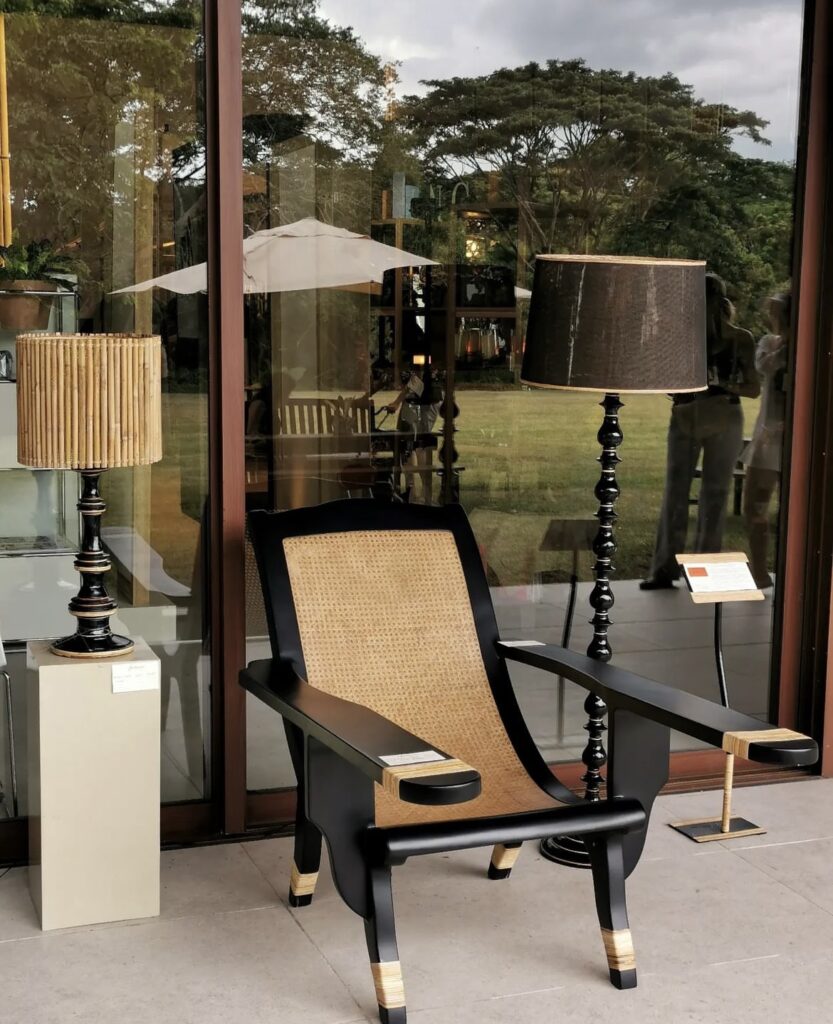
Applying resource and waste management
Beyond being a founder of Artifeks, Barberis is a firm believer of being able to practice resourcefulness and creativity in whatever she does.
“By practice, I’m naturally resourceful so I really like to extract as much as I can from certain things because I don’t like being wasteful, so I always try to integrate that into whatever design,” she said, adding that she continuously tries to impart the same practices to her children and workers.
However, being able to produce innovative and high-quality home pieces also requires a lot of discipline and hard work from artisans, which can pose a challenge: “It’s a challenge because they started from different backgrounds and very different educational levels, so transforming certain mindsets from that waste mindset [means] to hold on… and work with what we have first.”
“Filipinos are very creative. I think the challenge really is in sustaining certain work ethics; It’s the day-to-day maintenance of ‘how do we sustain this motivation, how do we keep people creative, how do we make the craftsmen understand that standards are evolving, and how we need to be better each and every day,’” she added.
Moving forward with manufacturing and producing premium quality pieces, Barberis is eager to focus on research and development as her next step.
“We are exploring now how to use more plant fibers and integrate that into fiberglass [or] resin,” she said, adding that they are also exploring how to create tables, trays and other beautiful pieces of furniture through the use of metal.
She is also firm on creating a team of proficient and passionate artisans who are just as keen on sustainability and resource and waste management.
“(I am focused on) creating a guild of craftsmen where we are able to impart practices on waste and resource management and then sharing this knowledge to the next generation so that sustainable development comes in the form of generative learning,” she said.
With Jia Bote
